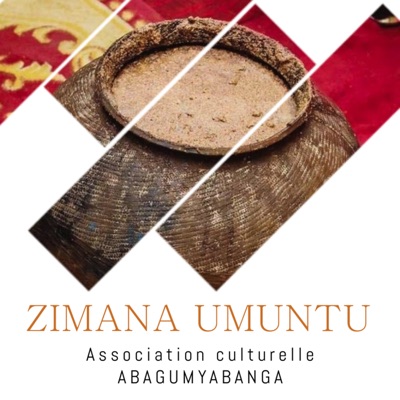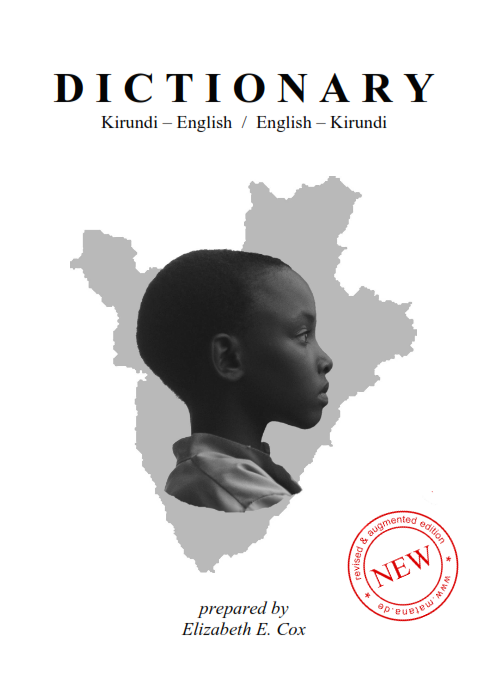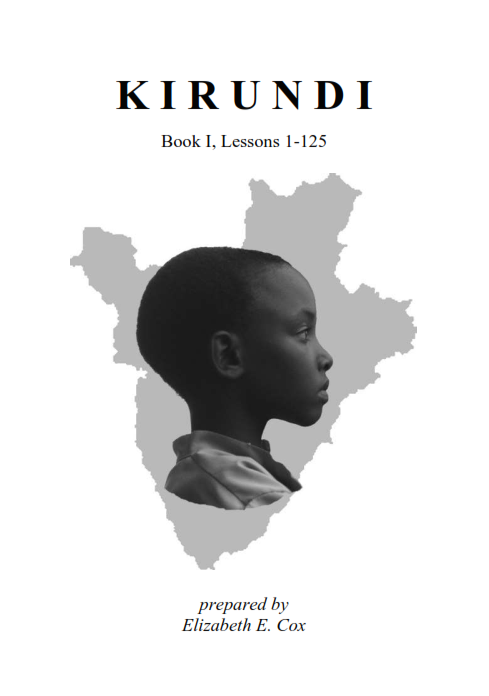first ▶ -ambere (preceded by class prefix)
(~ of anything) intangamarāra
(to do ~) kubānza, gushūza
(to plant ~) gushūza
(~ of anything) intangamarāra
(to do ~) kubānza, gushūza
(to plant ~) gushūza
En-En dictionary
icambere (ivy-) adj 4 class 4
singular: iki-,ic-
plural: ibi-,ivy- ▶ priority, a first
singular: iki-,ic-
plural: ibi-,ivy- ▶ priority, a first
umushūzo (imi-) 2 class 2
singular: umu-
plural: imi- ▶ first fruits
singular: umu-
plural: imi- ▶ first fruits
kuzūnguruka (-zūngurutse) v ▶ to go around, to cycle (the stem 'zungu' is also the origin of umuzungu, which does not mean 'white person' but rather 'someone going around', describing the first European explorers)
kwēra (-ēze) v ▶ 1. to be white, 2. to be pure, 3. to be innocent, 4. to ripen, 5. to get the first teeth
corn ▶ ikigōri
(cob) igitiritiri
(early kind) isega
(kind with big kernel) ikijigo
(ground corn that has first been roasted) igikweme
(silk) ubusage
(tender new) igishōro
(yellow kind) amashigisha
(to shell) guhungura, kuvūngurīsha
(wheat) ingano
(cob) igitiritiri
(early kind) isega
(kind with big kernel) ikijigo
(ground corn that has first been roasted) igikweme
(silk) ubusage
(tender new) igishōro
(yellow kind) amashigisha
(to shell) guhungura, kuvūngurīsha
(wheat) ingano
En-En dictionary
intangamarāra (in-) 3 class 3
singular: i-,in-
plural: i-,in- ▶ first of anything
singular: i-,in-
plural: i-,in- ▶ first of anything
teeth ▶ amēnyo (see also tooth)
(grinding of) insya z'amēnyo
(very close together) impatane
(to brush the) kwīnyugunura, kwīyugunyura
(to get the first) kwēra
(to grit) gukomānya, kuzyēgenya
(to grit one's ~ to avoid showing pain) gushinyanga, gushinyiriza
(to notch) guhongora
(to pull) guhongora
(grinding of) insya z'amēnyo
(very close together) impatane
(to brush the) kwīnyugunura, kwīyugunyura
(to get the first) kwēra
(to grit) gukomānya, kuzyēgenya
(to grit one's ~ to avoid showing pain) gushinyanga, gushinyiriza
(to notch) guhongora
(to pull) guhongora
En-En dictionary
gushūza (-shūrije) v ▶ to begin, to do first, to plant first
leaves ▶ (young bean ~, when only the first two are there) ingāmba
(stripped from tree) udukōkōrwa
(used for perfume) imbazi
(see also 'leaf')
(to have abundant) gusagaba
(to put forth new) kurēmba
(to strip from tree or stick) gukōkōra
(stripped from tree) udukōkōrwa
(used for perfume) imbazi
(see also 'leaf')
(to have abundant) gusagaba
(to put forth new) kurēmba
(to strip from tree or stick) gukōkōra
En-En dictionary
-ambere adj ▶ first (preceded by class prefix)
ugutabāra 9 class 9
singular: uku- ▶ first aid
singular: uku- ▶ first aid
ingāmba (in-) 3 class 3
singular: i-,in-
plural: i-,in- ▶ young bean leaves (when only the first two leaves are there)
singular: i-,in-
plural: i-,in- ▶ young bean leaves (when only the first two leaves are there)
igikweme (ibi-) 4 class 4
singular: iki-,ic-
plural: ibi-,ivy- ▶ ground corn that has first been roasted
singular: iki-,ic-
plural: ibi-,ivy- ▶ ground corn that has first been roasted
good evening ▶ mwīriwe (used any time during the day or evening when greeting one after first time)
En-En dictionary
bean ▶ igiharage
(green) umubīmba, umukerere, umukonyogo
(lima) igiharo
(red) ishigisha
(small red) uduharawe
(leaves) umukubi
(leaves, first two) ingāmba
(pod) urusokoro
(sprout) umugōndōra
(that have been put away for a year) igihitira
(to put ~ away for a year) guhitiza
(to put away ~ for several years) guhitikirana, guhitirana
(to tie ~ on hedge to dry) gushisha
(green) umubīmba, umukerere, umukonyogo
(lima) igiharo
(red) ishigisha
(small red) uduharawe
(leaves) umukubi
(leaves, first two) ingāmba
(pod) urusokoro
(sprout) umugōndōra
(that have been put away for a year) igihitira
(to put ~ away for a year) guhitiza
(to put away ~ for several years) guhitikirana, guhitirana
(to tie ~ on hedge to dry) gushisha
En-En dictionary
bwakēye phr ▶ Good morning (from guca, greeting used almost any time of day if first meeting, also bgakēye)
umuzūngu (aba-) 1 class 1
singular: umu-
plural: aba- ▶ white person (lit. 'someone going around', referring to the first European explorers, from kuzunguruka)
singular: umu-
plural: aba- ▶ white person (lit. 'someone going around', referring to the first European explorers, from kuzunguruka)
kubānza (-bānje) v ▶ to begin by, to do first
imfura (im-) 3 class 3
singular: i-,in-
plural: i-,in- ▶ first-born child
singular: i-,in-
plural: i-,in- ▶ first-born child
uburiza 8 class 8
singular: ubu- ▶ (no pl.) first-born
singular: ubu- ▶ (no pl.) first-born
aid ▶ imfashanyo
(to ~) gufasha
(to go to give things to one whose house has burned) gusuhūza
(first ~) ugutabāra
(to ~) gufasha
(to go to give things to one whose house has burned) gusuhūza
(first ~) ugutabāra
En-En dictionary
child ▶ umwāna, umugisye, umukeme, umurerwa
(before he begins to know anything) igitambamboga, igitwengerabarozi
(disobedient) intabarirwa
(first-born) imfura
(healthy, about 4 months) ikibunduguru
(illegitimate) igihūmbu, ikivyārwa
(learning to walk) ikidegedege, intavyi
(male) umuyibigi
(of) mwene
(of mixed marriage) ikivyārwa
(only) ikinege, umwāna w'ikinege
(derogative) umuhimbiri
(small) ikibondo
(starting to know a little) umwankavu
(that doesn't grow properly) imfunya
(unwanted or orphan) intābwa
(up to 8 or 10 years) umugimbi
(weaned) umucūko, umukurira
(youngest or favourite) umuhererezi
(~ care) ubuhinga bwo kurera abana
(~ benefit) imfashanyo y'umuryango
(before he begins to know anything) igitambamboga, igitwengerabarozi
(disobedient) intabarirwa
(first-born) imfura
(healthy, about 4 months) ikibunduguru
(illegitimate) igihūmbu, ikivyārwa
(learning to walk) ikidegedege, intavyi
(male) umuyibigi
(of) mwene
(of mixed marriage) ikivyārwa
(only) ikinege, umwāna w'ikinege
(derogative) umuhimbiri
(small) ikibondo
(starting to know a little) umwankavu
(that doesn't grow properly) imfunya
(unwanted or orphan) intābwa
(up to 8 or 10 years) umugimbi
(weaned) umucūko, umukurira
(youngest or favourite) umuhererezi
(~ care) ubuhinga bwo kurera abana
(~ benefit) imfashanyo y'umuryango
En-En dictionary
do ▶ (to) kugira, gukora
(again) kwongera
(always) kwāma, guhora
(anyhow, in spite of) gupfa
(continually) kwāma, guhora
(the dishes) kwoza ivyombo
(even more) kurushiriza
(first) kubānza, gushūza
(forcefully) kwīhanukīra
(habitually) kumēnyera
(have too much to ~) kurēngerana
(the impossible) gufyidikīra
(~-it-yourself) ukugira utugenegene
(housework) kugora
(one's duty) gushimika
(quickly) gukwākwānya, gushōka, gusobaganya, gusūriranya, gutebūtsa
(quickly and carelessly) kuraha
(quickly without thinking) gusimbagurika
(~ not) -ōye (verb without infinitive)
(reluctantly) kwīyumānganya
(a sloppy job) kurēngagiza
(something alone) kwīgūnga
(something by oneself without authority) kwigenera
(something that causes pleasure or amazement) gusamāza
(that which you declared you would not ~) kwīrahuruza
(two things at once) kubāngikanya
(unwillingly) kugoyagoya
(unwillingly and complainingly) kunyinkira
(the washing up) kwoza ivyombo
(again) kwongera
(always) kwāma, guhora
(anyhow, in spite of) gupfa
(continually) kwāma, guhora
(the dishes) kwoza ivyombo
(even more) kurushiriza
(first) kubānza, gushūza
(forcefully) kwīhanukīra
(habitually) kumēnyera
(have too much to ~) kurēngerana
(the impossible) gufyidikīra
(~-it-yourself) ukugira utugenegene
(housework) kugora
(one's duty) gushimika
(quickly) gukwākwānya, gushōka, gusobaganya, gusūriranya, gutebūtsa
(quickly and carelessly) kuraha
(quickly without thinking) gusimbagurika
(~ not) -ōye (verb without infinitive)
(reluctantly) kwīyumānganya
(a sloppy job) kurēngagiza
(something alone) kwīgūnga
(something by oneself without authority) kwigenera
(something that causes pleasure or amazement) gusamāza
(that which you declared you would not ~) kwīrahuruza
(two things at once) kubāngikanya
(unwillingly) kugoyagoya
(unwillingly and complainingly) kunyinkira
(the washing up) kwoza ivyombo
En-En dictionary
plant ▶ (to ~) gutēra
(to ~ broadcast) kumījīra
(first) gushūza
(small seeds) kubiba
(to be loaded with fruits or grain) gutēngerera
(to be lush and green) gutotahara
(to come up thickly and thus not do well) gusorora
(to have abundant leaves and branches) gusagaba
(to help ~, throw beans in soil as other hoes) gutēragira
(to put forth branches) gushamika
(to put out big spreading branches) gusagarara, gutabarara
(to send forth shoots) gutōha
(to ~ broadcast) kumījīra
(first) gushūza
(small seeds) kubiba
(to be loaded with fruits or grain) gutēngerera
(to be lush and green) gutotahara
(to come up thickly and thus not do well) gusorora
(to have abundant leaves and branches) gusagaba
(to help ~, throw beans in soil as other hoes) gutēragira
(to put forth branches) gushamika
(to put out big spreading branches) gusagarara, gutabarara
(to send forth shoots) gutōha
En-En dictionary
first found in: Kirundi I (Study lessons)
lesson 1 ▶ Class 1 umu–, aba–
lesson 3 ▶ Possessive Adjective
lesson 4 ▶ Class 2 umu–, imi–
lesson 5 ▶ Mu and Ku
lesson 8 ▶ Adjectives I
lesson 10 ▶ Review 1 - 9
lesson 15 ▶ Special Uses of Class 4 iki–, ibi–
lesson 17 ▶ Negative of the –ra– Present
lesson 19 ▶ Class 5 i–, ama– & Continuous present
lesson 31 ▶ Negative of Future
lesson 37 ▶ Cardinal Numbers 1-10
lesson 41 ▶ –ose (All, Every)
lesson 60 ▶ Review 51 - 59
lesson 61 ▶ Ordinal Numerals
lesson 66 ▶ Imperatives with the Subjunctive
lesson 71 ▶ Far Past Tense
lesson 72 ▶ Negative of Far Past
lesson 73 ▶ Father and Mother
lesson 76 ▶ Possessive Adjectives I
lesson 80 ▶ Objects with Causatives
lesson 86 ▶ Demonstrative Adjectives I
lesson 97 ▶ Adjective –he?
lesson 101 ▶ Reading Lesson
lesson 117 ▶ Ka Tense
lesson 119 ▶ More Adverbs
lesson 120 ▶ Miscellaneous Expressions
first found in: Kirundi II (Grammar)
chapter 1 ▶ Compound Past Tenses
chapter 11 ▶ Subjunctive and Imperative
chapter 12 ▶ Subjunctive used for Contrasting Statement
chapter 17 ▶ –kazo– Infix
chapter 20 ▶ –gira for Negative Imperative, and meaning “to be”
chapter 24 ▶ “still” and “no longer” in the Past and Future
chapter 67 ▶ Ordinal Numerals with ubwa, or –gira: kubiri, etc.
chapter 72 ▶ nuko and n’uko
chapter 73 ▶ How to say “without”
chapter 79 ▶ Various Expressions
chapter 81 ▶ Times of Day
first found in: Imyibutsa (proverbs)
Umwibutsa 45 ▶ Uwugusize intambwe aba agusize...











 printable PDF files.
printable PDF files.

 This unique dictionary by Betty Cox is known for the deep cultural insight it provides to many Kirundi terms. It has been thouroughly revised, adapted to present-day Kirundi orthography rules and many new words and meanings have been added.
This unique dictionary by Betty Cox is known for the deep cultural insight it provides to many Kirundi terms. It has been thouroughly revised, adapted to present-day Kirundi orthography rules and many new words and meanings have been added. The Kirundi self study course guides you through 125 lessons and makes you learn both the necessary vocabulary and basic grammar.
The Kirundi self study course guides you through 125 lessons and makes you learn both the necessary vocabulary and basic grammar. English pronunciation by
English pronunciation by


